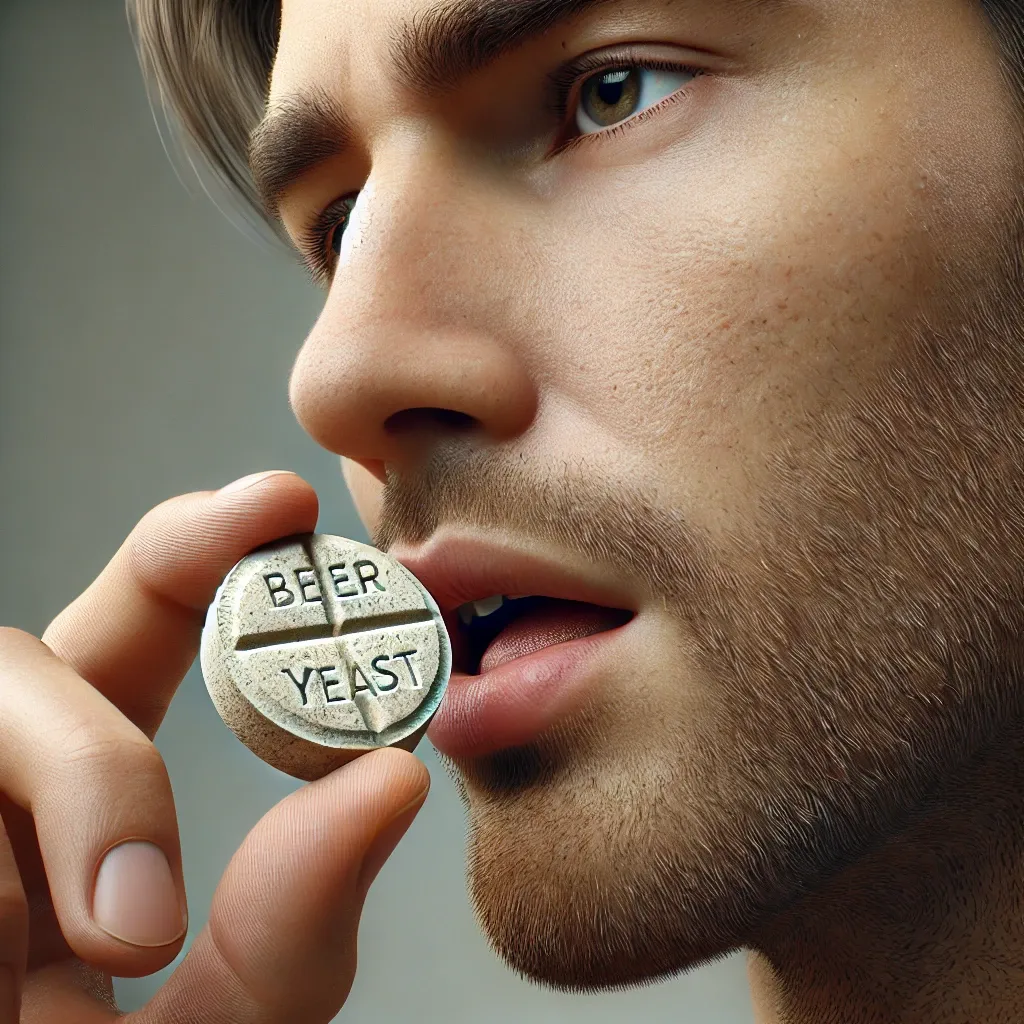If You've Chosen Beer Yeast for Hair Loss, Here's What You Should Know
Hair loss impacts appearance and confidence, creating psychological stress for many people. Regardless of age or gender, hair loss can be challenging, leading individuals to explore various treatments for relief. Recently, beer yeast has gained attention as a dietary supplement that may support hair loss prevention and improve hair health. Beer yeast is rich in nutrients such as biotin, protein, and B vitamins, which can positively affect hair health. However, beer yeast does not guarantee the same results for everyone, as the effectiveness depends on individual causes and health conditions. Let’s explore the factors to consider when choosing beer yeast for hair loss.
What is Beer Yeast?
Beer yeast is a natural dietary supplement made by drying the yeast used in brewing. It contains protein, B vitamins, minerals, and biotin (vitamin B7), essential for hair and nail health. Biotin plays a crucial role in forming keratin, the basic structure of hair, and contributes to overall health by aiding in carbohydrate, protein, and fat metabolism.
While beer yeast can help prevent and improve hair loss, its effectiveness is limited to hair loss caused by biotin deficiency. Hair loss has multiple causes, and not all cases are related to biotin deficiency. Therefore, it’s essential to assess your specific hair loss cause before deciding if beer yeast is the right solution for you.
The Link Between Biotin and Hair Loss
Biotin is a vital vitamin for maintaining healthy hair. When biotin levels are insufficient, hair loss and dry, brittle hair may occur. While most people obtain adequate biotin through a balanced diet, certain factors can lead to deficiencies. Extreme dieting or long-term medication use can disrupt biotin absorption and metabolism, potentially worsening hair health.
The recommended daily biotin intake for adults is approximately 30µg, which most people can meet through regular meals. However, in rare cases, genetic issues with biotin metabolism may require additional supplementation. Understanding your biotin levels before starting beer yeast is essential for targeted hair health improvement.
Why Beer Yeast May Not Be Effective for Hair Loss
- Insufficient Biotin Deficiency Assessment – Many people with hair loss already get enough biotin from their diet, so additional supplementation might not yield noticeable results.
- Various Causes of Hair Loss – Hair loss is not solely due to nutrient deficiency; stress, hormonal changes, and genetics play significant roles. If biotin deficiency isn’t the cause, beer yeast may be less effective.
- Short Usage Period – Effective results from biotin supplementation typically require a consistent intake of at least three months. Many people give up too soon to see meaningful results.
- Incorrect Usage – If the dosage and timing of beer yeast intake are not suited to individual needs, effectiveness may decrease. Tailoring usage to personal conditions is crucial for optimal benefits.
Precautions When Using Beer Yeast
- Gout Patients – Beer yeast contains purine, which can increase uric acid levels in people with gout, potentially triggering symptoms. Those with gout should avoid beer yeast.
- Yeast Allergy – Some individuals may experience allergic reactions to yeast, including headaches, bloating, or indigestion. If these symptoms occur, discontinue use and consult a healthcare professional.
- Interaction with Antidepressants – Beer yeast contains tyramine, which may interact with antidepressants, causing blood pressure spikes or headaches. Consult a healthcare provider before use if you are on antidepressants.
- Follow Recommended Dosage – Overconsumption of beer yeast can lead to side effects. Adhering to the recommended dosage is essential for safe use.
Other Alternatives Beyond Biotin
Addressing hair loss does not solely depend on beer yeast. Identifying and treating the specific cause is essential. Consider the following alternatives:
- Medications – FDA-approved drugs like minoxidil and finasteride have proven effective for hair loss. Consult a healthcare provider to choose a safe option.
- Nutritional Support – Nutrients like vitamin D, zinc, and omega-3 fatty acids benefit hair health. A balanced diet or supplements can help meet these nutritional needs.
- Lifestyle Changes – Consistent sleep, stress management, and a healthy diet are crucial for maintaining hair health. Improving daily habits can help prevent hair loss and improve existing symptoms.
Conclusion
Hair loss is a complex issue that requires time and patience. While beer yeast can aid in biotin supplementation, the causes of hair loss vary, and beer yeast may not be a universal solution. Consulting with healthcare professionals to accurately diagnose and treat the specific causes of hair loss is the best approach for long-term hair health. A tailored treatment plan can better address individual needs, making it the most effective path for addressing hair loss.


